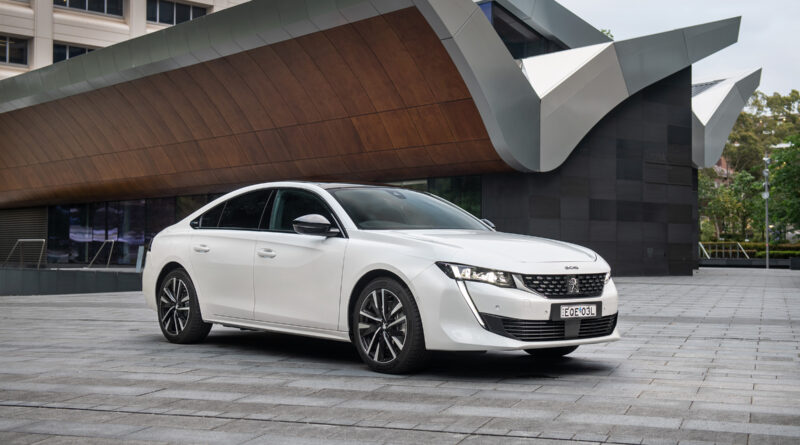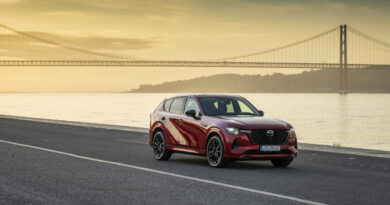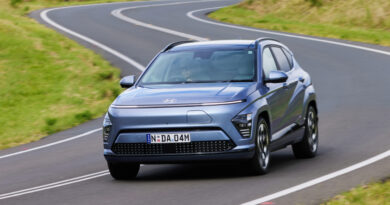Peugeot 508 GT Fastback Plug-in hybrid review
Peugeot is planning big things for electric motors and it starts with this, the plug-in hybrid version of the 508.
The mid-sized sedan/hatchback – or Fastback, as the company calls it – picks up some electric motor assistance to allow pure EV running for short distances as well as added performance and longer range in hybrid mode.
It looks almost identical to a regular 508, although some “HYbrid” badges (with the HY in blue) subtly distinguish it.
Whereas the 508 is available as a Fastback (think of it as a sleek sedan with some hatchback functionality) and Sportswagon, the PHEV only comes in the Fastback body style.
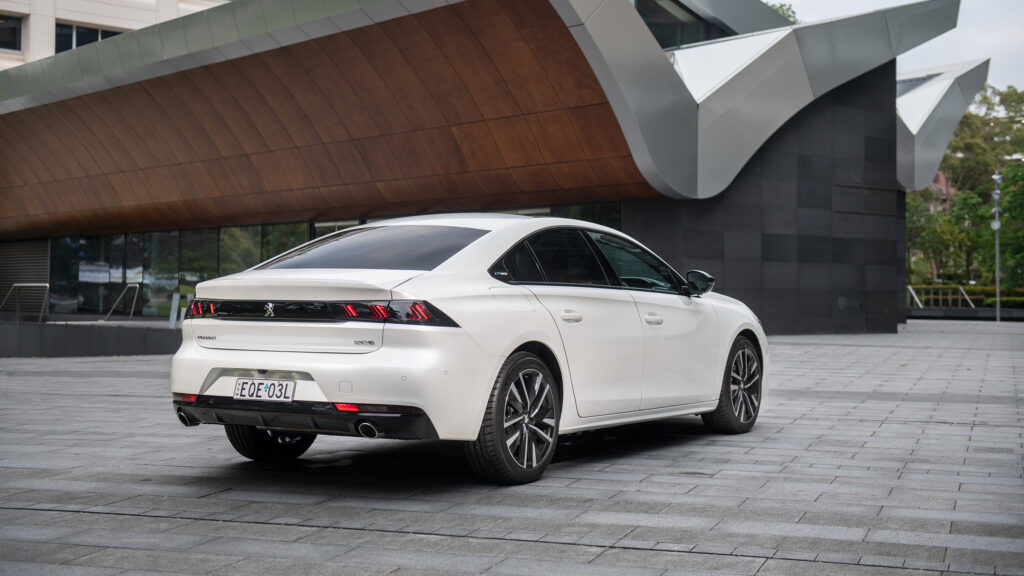
While it could in some ways compete with various EVs – including the Tesla Model 3 and Polestar 2 – the 508 PHEV’s most direct rival is the BMW 330e.
Value
As with the regular 508 the PHEV is offered in GT trim as part of the highly-specified single-model strategy. That means loads of gear, including quality Nappa leather, smart key entry, adaptive dampers, blind spot warning, auto emergency braking (AEB), adaptive cruise control, a digital instrument cluster, 10.0-inch central infotainment screen and a 10-speaker sound system by Focal. There’s also Apple CarPlay and Android Auto.
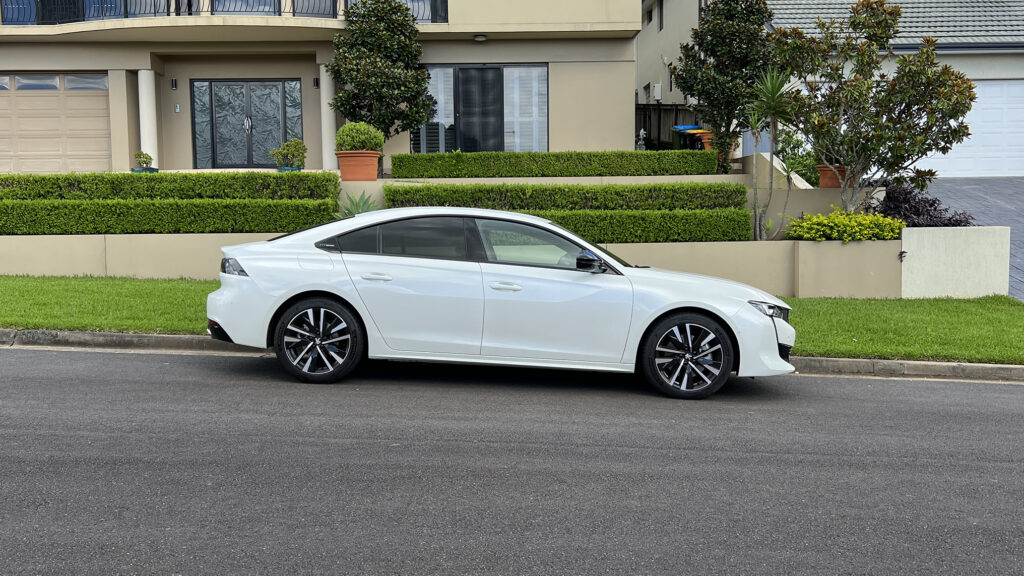
The 19-inch wheels of the petrol-only Fastback are replaced by 18s in the PHEV and the space saver spare tyre is replaced by a repair kit.
Pricing is $76,990 before on-road and dealer costs, or $17K more than the non-PHEV ($59,840).
It’s a big step up from a price perspective with the main appeal being able to run it on electricity in many situations.
Inside
The cabin is a modern and elegant space with lashings of quality leather and matte carbon fibre finishes on the dash. On first glance it lives up to the price tag with a specialness with hints of French flair.
There’s a sportiness to some elements, such as the small diameter steering wheel that you peer over to see the gauges; different, yes, although it’s more different for the sake of standing out that anything that brings big benefits. Doors also have frameless glass similar to what you may see on a coupe.
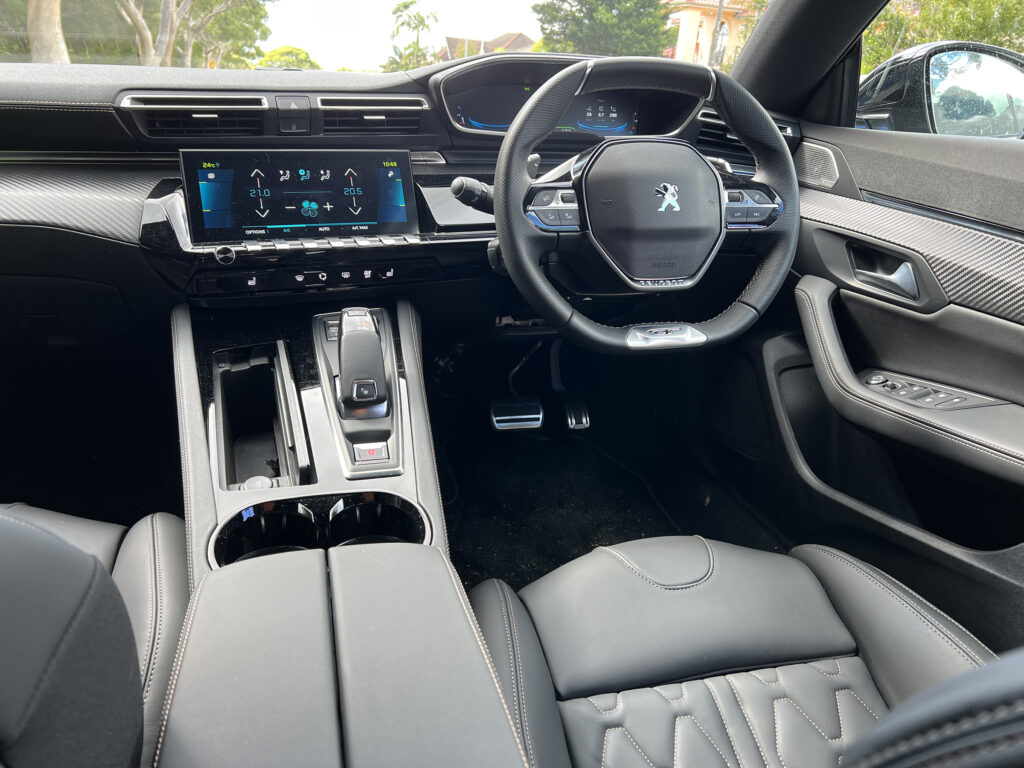
It’s also relatively low-slung, which reinforces that sportiness when you lower yourself into the seat. In some ways it’s a refreshing antidote to the perch-them-up-high mantra of some many SUVs.
A split opening centre arm rest twins with some cupholders and a covered binnacle just ahead of it for storage. Plus there’s a handy space beneath the floating centre console.
Piano-style keys make for easy selection of the main menus embedded within the screen, although some of the functionality of that touchscreen isn’t always intuitive or logical. It seems odd, for example, that you have to press a button to enter a menu to adjust the fan speed and temperature controls yet there are fixed buttons for the heated seats. We certainly found ourselves adjusting the air flow a lot more than we were warming our rear-ends.
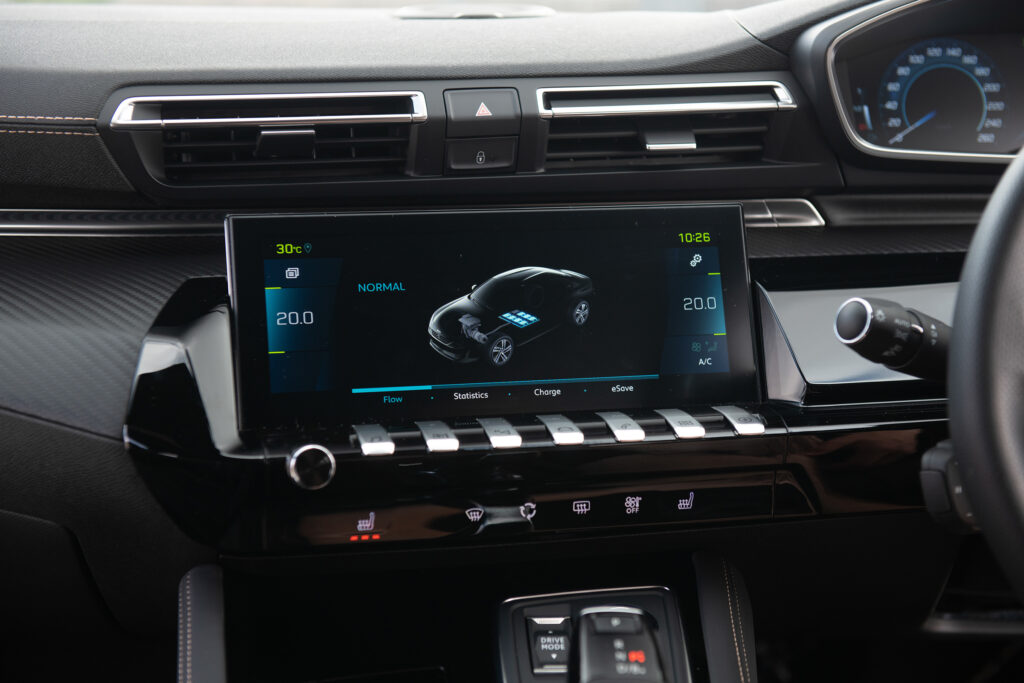
While it’s comfy and welcoming up front, those in the rear get a lot less head room, a result of the sloping roofline. Some will see it as a small price to pay for what is a stylish four-door. Combined with modest knee room it backs the back seats best suited to kids.
A 60/40 split-folding back seat improves the load functionality of the boot, which has the same 487-litre capacity as non-PHEV versions. And, while it looks like a sedan, the high-hinged hatch boot makes for easy access and a larger opening.
Performance and efficiency
Like the non-hybrid 508 GT Fastback, the PHEV gets a 1.6-litre four-cylinder turbo engine. However, it’s been tuned for different work in a hybrid, so makes less power, at 133kW, compared with 165kW when it’s not mated to a hybrid system. Torque peaks at the same 300Nm.
There’s also an electric motor making 81kW and 320Nm.
Both petrol engine and electric motor drive the front wheels and when working together can make a combined 165kW and 360Nm, good enough to propel the 508 PHEV to 100km/h in 8.3 seconds. That’s 0.2 seconds slower than the ICE model due to the additional 300kg that comes with the hybrid system.
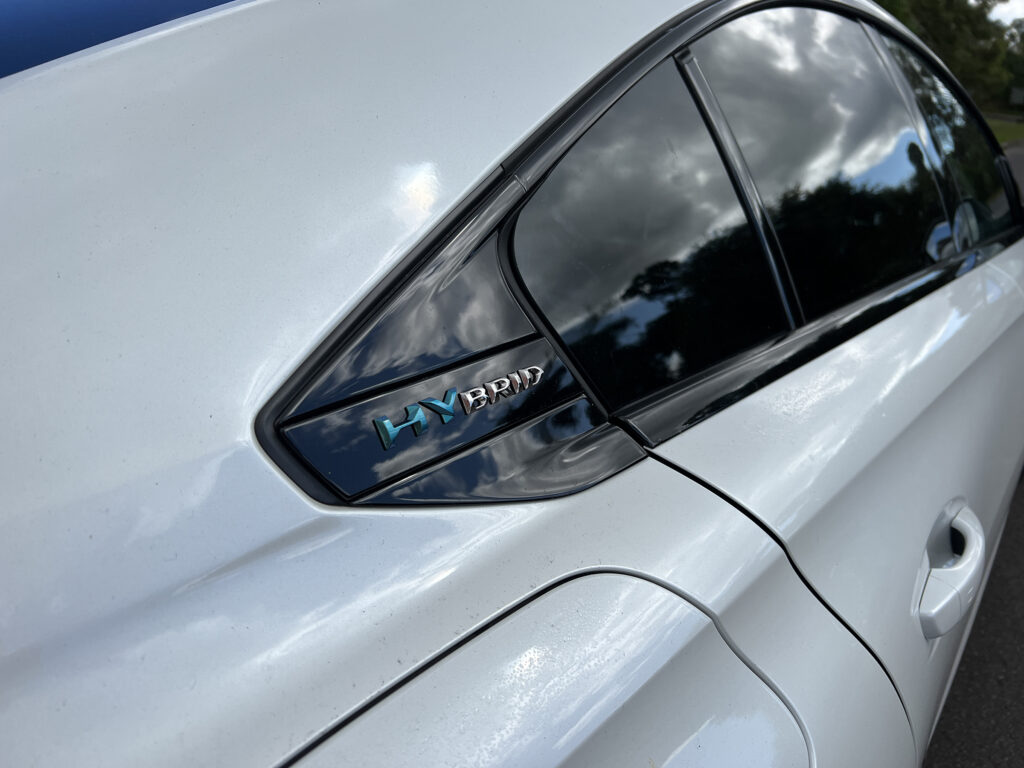
As with all PHEVs, performance will generally be a lot less than that because many will try to utilise the electric-only mode.
There’s reasonable pulling power that makes suburban running easy enough. Push the pedal to the floor, though, and it engages hybrid mode with the petrol engine chiming in; we’d prefer if the Electric drive mode kept the petrol engine in a slumber. In EV only mode most of the torque (320 of the 360 Newton-metres) is available almost instantly, so there’s thoroughly respectable pulling power. It’d just be good to be able to use it constantly without worrying about waking the ICE.
But don’t expect big gains if you bring the petrol engine into the equation. Sure, there’s more to play with, but you have to get the engine revving, and even then it’s modest rather than enthusiastic.
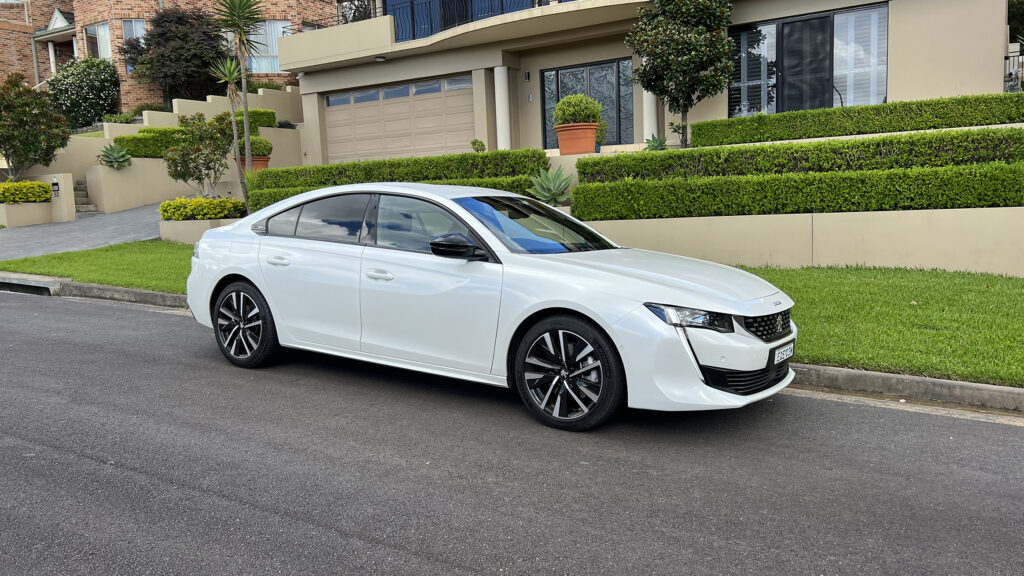
The interplay between the two is generally good, although take off swiftly and the engine grumbles to life less serenely.
The petrol engine’s most useful asset, then, is its ability to extend the range, which to some extent is what a PHEV is all about.
As for efficiency, the electric motor generally uses something like 25kWh per 100km if you’re only relying on electricity. With an 11.8kWh battery that makes for about 40km of usable EV range (the WLTP figure is 55km, but our experience suggests you’ll have to drive gingerly to achieve that).
In Hybrid mode it uses mostly petrol at a rate of between 6 and 10 litres per 100km, depending on how you’re driving it.
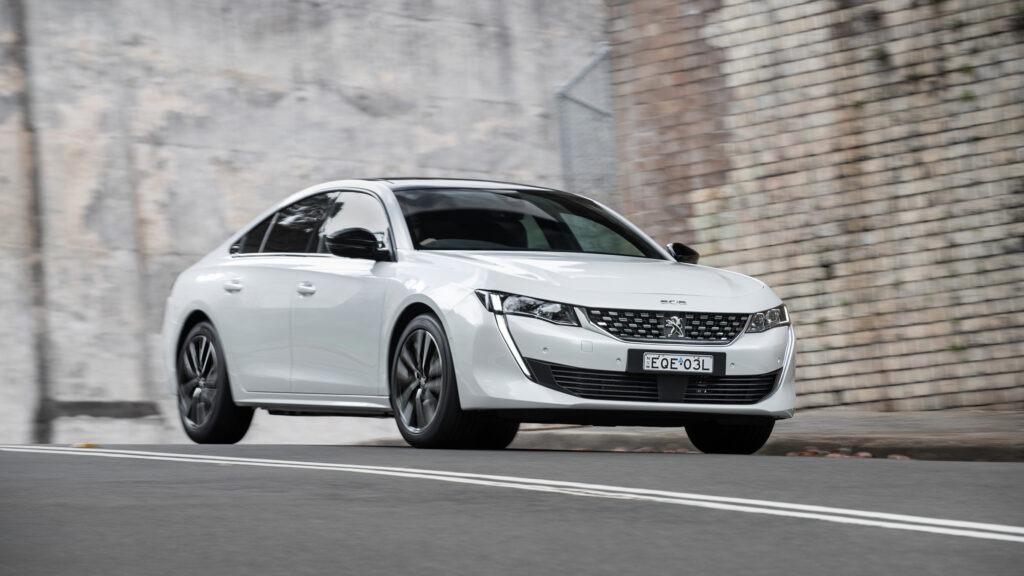
Those wanting to tow can also lug up to 1330kg (versus 1600kg for ICE models).
So, clearly, the biggest benefits are if you’re travelling shorter distances each day and can easily plug in to rely primarily on the EV side of the PHEV equation.
Charging
There’s no DC fast charging for the 508 PHEV, which isn’t a big negative given most people will likely charge at home on a slower AC outlet.
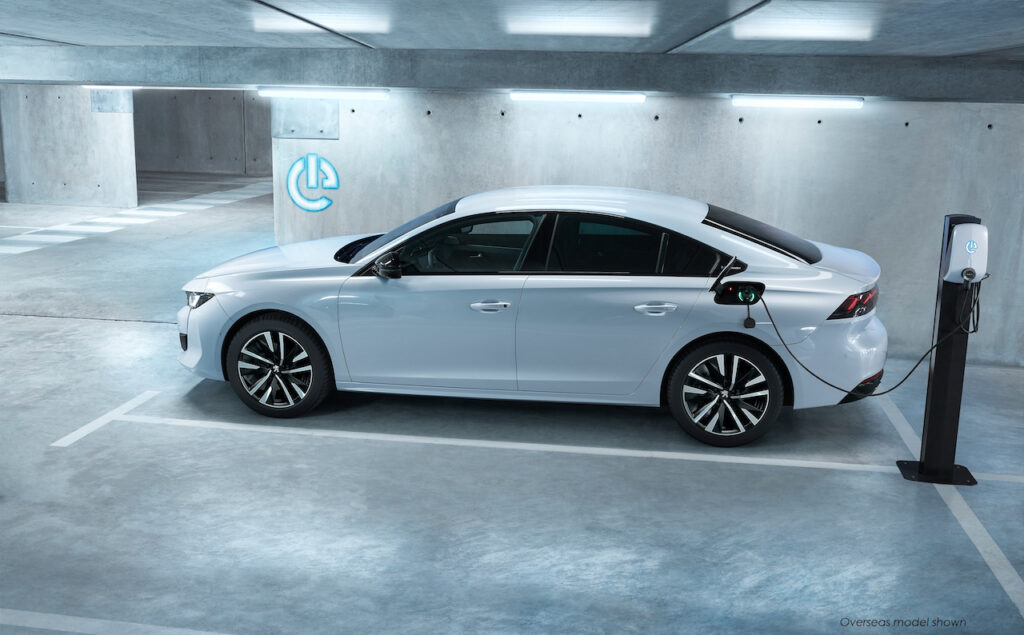
That AC charging can be done at up to 3.7kW, although given a home powerpoint delivers 2.3kW it hardly seems worth the expense to step up to a wallbox.
If you have splashed out on a wallbox you’re looking at around 3.5 hours for a full charge of the 11.8kWh battery. Or you can use a regular powerpoint, which stretches the charge time to about 5.5 hours.
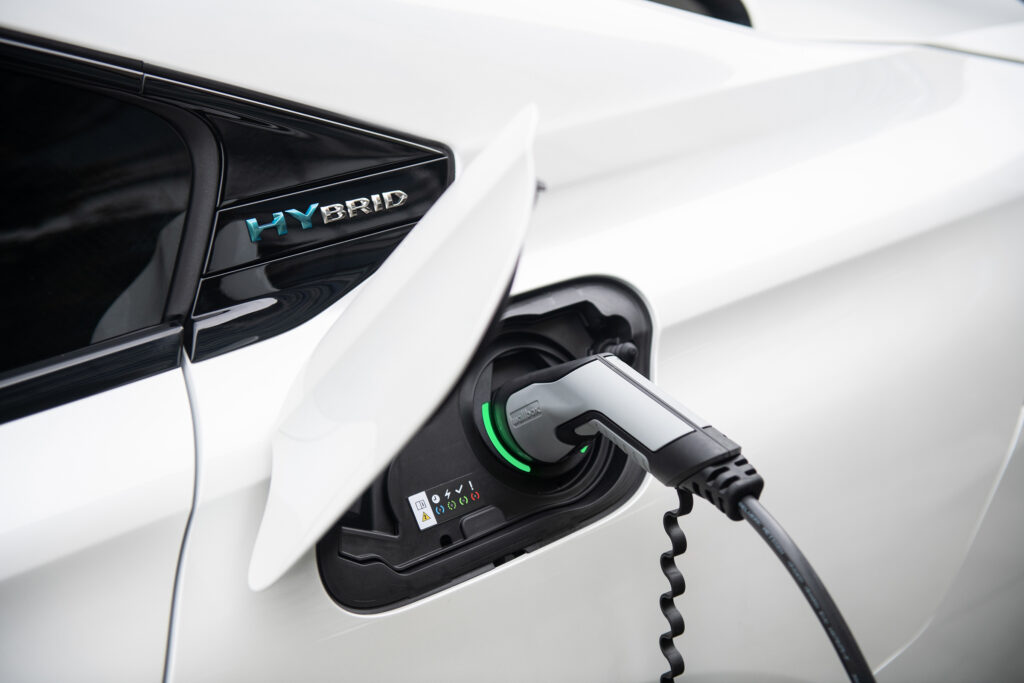
As for where to plug in, look for the separate filler flap on the passenger side that hides a Type 2 plug.
Ride and handling
The seating position and compact steering wheel of the 508 PHEV suggest it’s ready to carve up the corners.
Its on-road demeanour tell a different story. Once you take off, the overriding sensation is that it’s a car built for comfort.
The suspension is refreshingly compliant, quickly dispelling of larger bumps and even smothering the sharper-edged around-town nasties that bring many a modern prestige car undone.
It’s genuinely supple and the sort of car that even manages to soothe as you’re cruising along.
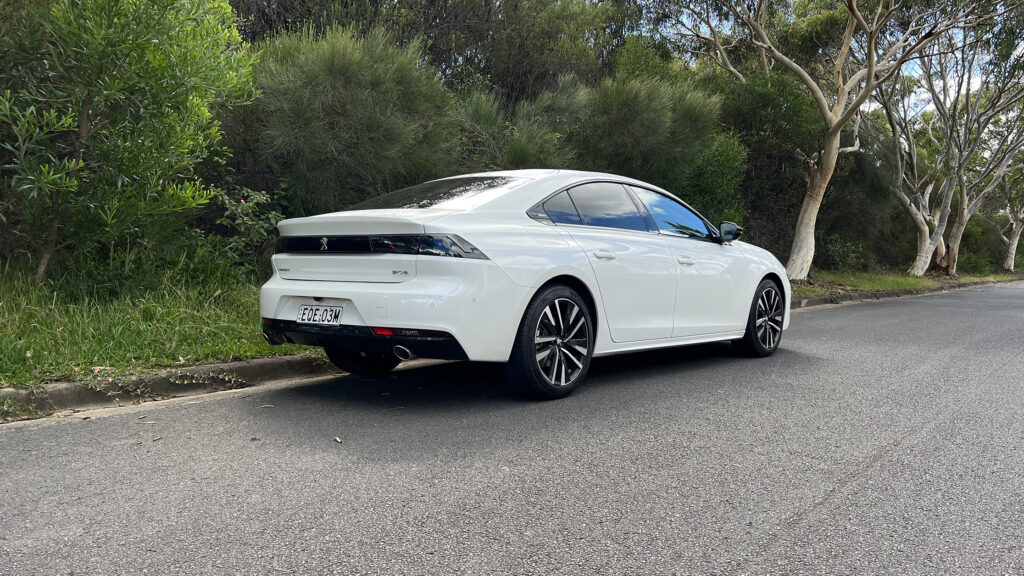
It helps that the PHEV rides on 18-inch tyres compared with the 19s of other Peugeot 508s. That means there’s a little more air between the outer edge of the tyre and the rim, helping cushion any blows.
Despite its relaxed nature, there’s also inherent ability. It points crisply into a corner and hangs on confidently. For those who want to test its dynamic ability they’ll be impressed with what’s on offer.
It’s also quiet, hushing tyre noise nicely.
Driving only the front wheels raises the question of torque steer (or tugging on the steering wheel under acceleration), but the reality is there’s not enough punch available to trouble the front-end traction.
But, again, any sort of stepping up of the pace seems to go against the nature of the 508 PHEV.
Talking point
The 508 PHEV gets the same iCockpit instrument cluster used on various Peugeots. It’s a clear and legible display with a selection of driver-customisable layouts depending on how you want the speedo and other gauges to be laid out. Its operation takes some familiarisation but once you’ve mastered it there’s a broad selection of looks to choose from.
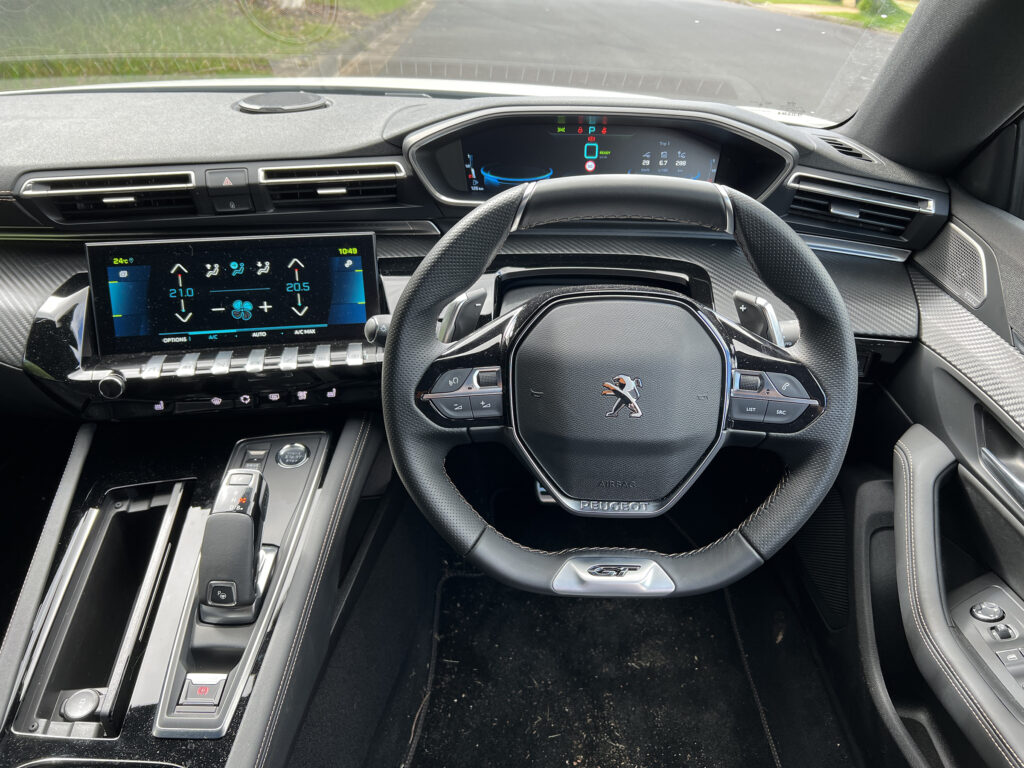
Safety
The 508 PHEV has six airbags and loads of driver assistance and active safety technologies.
That includes auto emergency braking, lane keep assist, blind spot warning and a driver attention monitor.
The main thing missing is rear cross traffic alert, a system that can provide alerts when reversing out of driveways or angle parking spots.
Verdict
The 508 is an impressively comfortable and well-presented fastback-style sedan that can run for about 40km on electricity before needing a charge. Its strength is in its everyday comfort and relaxed nature.
But it delivers that electric motoring with a substantial price premium over the regular 508s that makes it more expensive than many EVs.
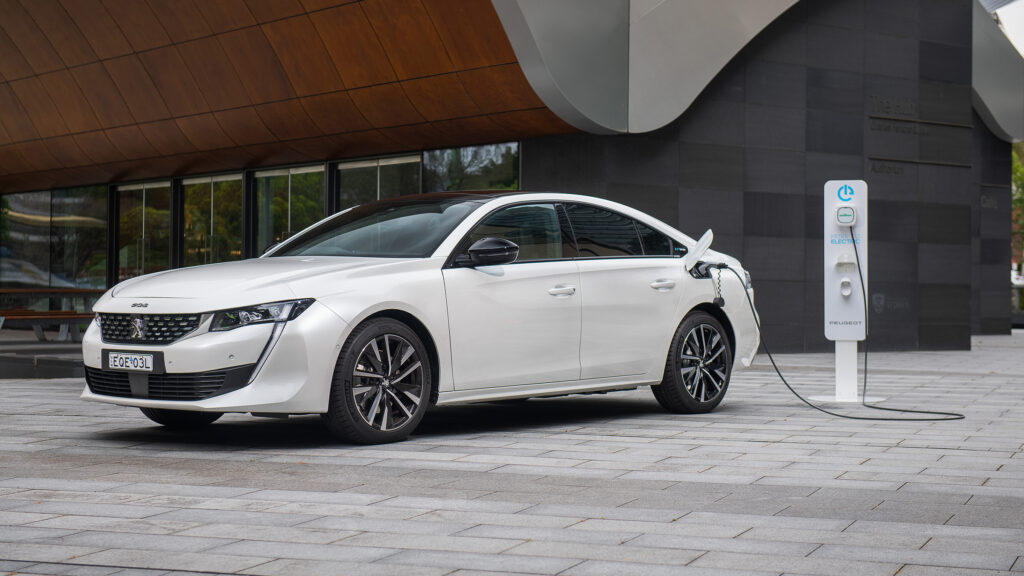
The backup of a petrol engine steps up the performance and extends its driving range to that of ICE-only cars it will no doubt be judged against, albeit using a fair bit of fuel in the process.
All of which suggests the 508 GT PHEV Fastback is more for lovers of prestige sedans who typically average less than 50km per day and want to make a partial switch to electricity – or for the Francophiles who want to experience the early electrified efforts of a brand set to embrace EVs.
Peugeot 508 GT PHEV Fastback specifications
Price: $76,990 plus on-road and dealer costs
Basics:PHEV, 5 seats, 4 doors, fastback sedan, FWD
Range: 55km (WLTP), 40-45km (realistic)
Battery capacity: 11.8kWh
Battery warranty: 8 years/160,000km, guarantee of 70% of original capacity
Fuel consumption: 1.8L/100km
Drivetrain: 133kW/300Nm 1.6-litre 4-cylinder turbo engine, 81kW/320Nm electric motor
AC charging: 3.7kW, Type 2 plug
DC charging: NA
0-100km/h: 8.3 seconds

